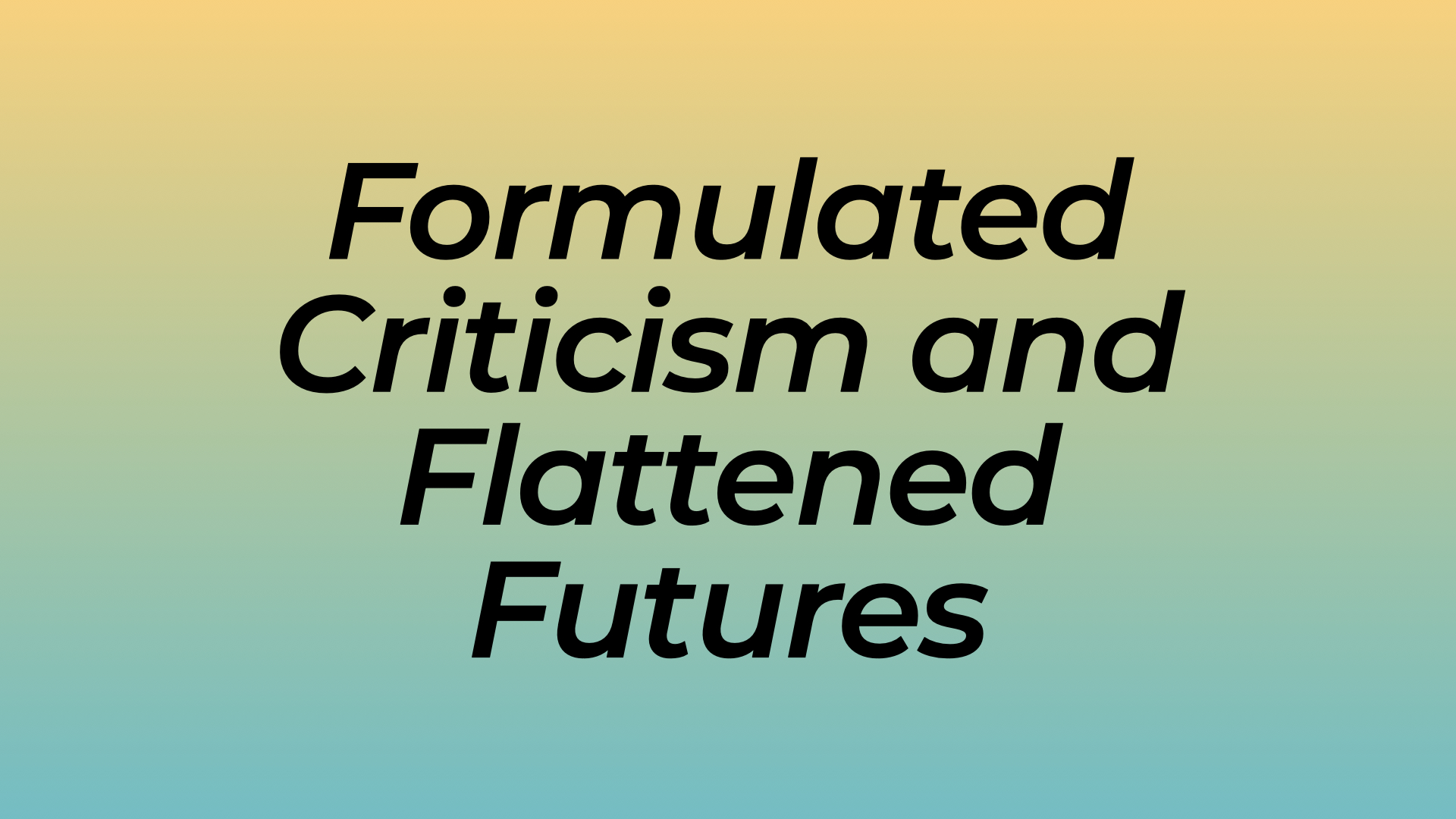There’s a trend I’ve been watching for some time about how the critical approach to technology is changing, and becoming more and more boring and formulated as the time passes. I started to write a short blog post about that one but things started to connect in my head in an unexpected way and realized that this is not only about technology but also about how people are looking at future in general.
I’ve decided to write about this topic when I first saw Eve’s Mastodon post:
If you are familiar with the names like Theorizing the Web, Haunted Machines, Real Life, you probably know what I mean. Many of the influential works and people I know online are from this circle. Most of them are still doing things that’s important and I still enjoy following what they’re doing and learn from them.
But this kind of critical approach is getting harder to find. What’s replacing it is mostly boring, bureaucratic, and dry criticism; centered in the US, and even though diverse in their approach in the US society sense, completely ignores the rest of the world.
There are two main things I find problematic in this new kind of mainstream tech criticism. First one is the way they’re strictly formulated and limited in their critical approaches. Most of the arguments and solution proposals are based on the same perspective and it’s applied to everything they come across. There are certain tech critics I can guess what they’re going to say about the next tech news, almost word by word. Their critical approach is based on minimum effort and maximum word-count.
Second problem is the way they limit all the discourse in certain parties and not leaving any space for anything else. Whether it’s a more nuanced perspective, contribution from someone outside the select countries, or someone who doesn’t fit their formulated camps. This ends up sucking all the potential and creativity out of the air and leaves a really boring and dry discussion.
All of this is not to say these critics are not creating anything useful. They do, when used in the right place and context. But the way this way of criticism going mainstream makes it less and less useful. It’s partially because it has become an easy-to-use formula. When something supposed to be critical experiences this transformation, you can see its usefulness degrade quickly1.
Why it bothers me this much is mainly about how it influences the people’s understanding of the future. Whether we like it or not, many people thinks tech and future is strongly related for a good reason. When they end up with two manufactured camps discussing tech and one side is throwing all of the positive sci-fi scenarios out there while the other side brings out all the dystopic visions they can think of. Sure, both gets everyone’s attention but it drowns out everything else and I’m not sure how useful it is.
“Exclusively positive images of the future fuel hope and industriousness, while exclusively negative images of the future fuel fear and discontent towards the status quo. Both are guaranteed to receive more attention than a careful, balanced (and likely more boring) analysis of multiple scenarios.”
Why Public Intellectuals Promote an Overly Simplistic Future, August Liljenberg
I highly recommend reading the whole article but this is why I think this kind of criticism is dangerous. It may sound like you’re warning people about potential risks and dangers but most of the time it only ends up being a formulated scenario, doing nothing but flattening the future for everyone exposed to it. When your criticism is not nuanced or open to other potentials, it’s not that different from what the side you’re arguing says.
Going back to the beginning of this article, you might see why I feel the need for more critical examples like the Haunted Machines and TtW. Work coming out of these were not one-sided, social-media adjusted criticism but provocative and creative ones. That kind of criticism actually gives people tools to think about the future in a more nuanced way, helps them to consider multiple futures. That kind of criticism doesn’t force people to become passive consumers of the criticism and leave them with the only option: choosing a side.
In addition to the risks this trend has, I also wanted to write about these kind of things online so that I can work on my approach to futures and how I want to work in this field. Since I decided to take my work in this area to more professional level, one thing I’ve been working in the background is to develop my personal approach and my way of futuring. This process also made me more sensitive to the ways I DON’T want to work or think as well.
In the end, one of the reasons this kind of criticism gets my attention because this is the kind of critical approach I want to avoid as much as possible. I want to help others to understand and discover the possibilities and nuances futures has, instead of taking all of that away. I’d much prefer to become a toolmaker for others to find their ways, instead of packaging up formulated and boring future visions for them. Because that kind of works and people working with this way of thinking inspired me, not the easy-to-use formulas.2


Leave a Reply